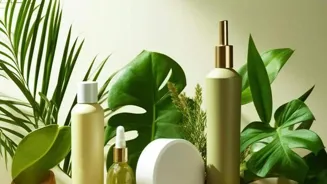Unlocking the Secrets of Natural Skincare: 7 Remedies for Common Skin Issues at Home. Dive in to discover glowing skin!
Namaste, readers! Getting good skin can be a tough task, especially with all the pollution
and daily stress. But don't you worry! You don't always need fancy creams or expensive treatments. Our own kitchens and gardens are full of natural helpers that can sort out many common skin problems.
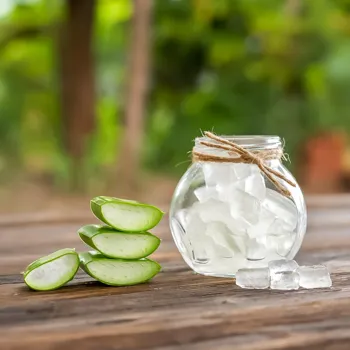
We're talking age-old remedies passed down through generations, the kind your nani and dadi swore by. These are safe, easy to use, and won't burn a hole in your pocket. Let's explore seven amazing home remedies to bring that healthy glow back to your skin!
Haldi (Turmeric) for a Radiant Glow and Acne Control
Haldi, or turmeric, is a staple in every Indian household, not just for cooking but also for its amazing medicinal properties. This bright yellow spice contains curcumin, a powerful antioxidant and anti-inflammatory compound.
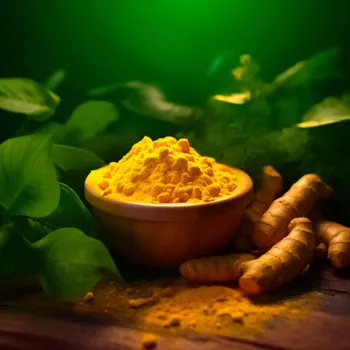
For your skin, this means fighting off free radicals that cause premature aging and calming down irritated, inflamed skin. It’s your skincare's personal bodyguard, fighting off the bad guys and keeping the good stuff safe.
Haldi has been used for centuries in ubtans and face packs to give brides a glowing complexion before their weddings. It’s a symbol of purity and auspiciousness, and now, it’s your secret to radiant skin, too.
Haldi helps brighten the skin, reduce blemishes, and even out skin tone.
It's also a fantastic remedy for acne because of its antibacterial properties that fight acne-causing bacteria. You can whip up a simple haldi face pack by mixing one teaspoon of haldi powder with one tablespoon of besan (gram flour) and enough rose water or milk to make a paste.
Apply this to your face and neck, let it dry for about 15-20 minutes, and then wash it off with lukewarm water. Regular use can visibly reduce acne scars and leave your skin looking brighter and clearer. Remember to use haldi sparingly, as it can stain the skin if used in excess.
A pinch is usually sufficient for most DIY recipes. Also, always do a patch test before applying it to your entire face, just to be sure you don't have any allergic reactions. This is especially important if you have sensitive skin.
Don’t just limit your haldi usage to face packs.
You can also incorporate it into your daily skincare routine by adding a pinch to your regular face wash or moisturizer. You can even make a haldi-infused oil by heating coconut oil with a small amount of haldi powder until the oil turns slightly yellow.
Let it cool and then use it as a massage oil for your face and body. This will not only nourish your skin but also give it a healthy glow. When buying haldi powder, try to opt for organic, good-quality haldi to ensure you're getting the maximum benefits.
The purity of the ingredient can make a big difference in the effectiveness of the remedy. So, go ahead and embrace the age-old goodness of haldi for naturally beautiful skin. It’s a gift from nature that keeps on giving!
Aloe Vera for Soothing Sunburn and Hydration
Aloe vera, the spiky green plant sitting pretty on your windowsill, is a treasure trove of skin-loving goodness. The cooling gel is rich in vitamins, minerals, and antioxidants that can do wonders for your skin. It’s nature’s first aid kit for sunburns, minor cuts, and irritations.
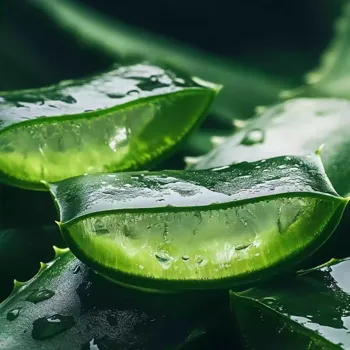
Aloe vera is like a cool drink of water for your skin, replenishing lost moisture and keeping it supple. It’s been used for centuries in traditional medicine and skincare practices, and its popularity continues to soar.
The plant is easy to grow at home, and having a ready supply of fresh aloe vera gel is a blessing for your skin.
Aloe vera is renowned for its ability to soothe sunburned skin. Its anti-inflammatory properties help reduce redness, swelling, and pain associated with sunburns.
It also promotes faster healing and prevents peeling. For hydration, aloe vera gel can be applied directly to the face and body as a natural moisturizer. It’s lightweight, non-greasy, and easily absorbed by the skin.
You can even mix it with other ingredients like honey or lemon juice for added benefits. For example, aloe vera and honey make a great face mask for dry skin, while aloe vera and lemon juice can help combat acne. The versatility of aloe vera makes it a valuable addition to any skincare routine.
Simply cut a leaf from your aloe vera plant, squeeze out the gel, and apply it directly to your skin.
Make sure to wash the leaf thoroughly before extracting the gel, as the outer layer may contain latex, which can cause irritation in some people.
To enhance the soothing effect of aloe vera, you can refrigerate the gel before applying it to your skin. The coolness will provide additional relief from sunburn or irritation. You can also use aloe vera gel as a natural makeup remover.
It gently cleanses the skin without stripping away its natural oils. So, next time you're looking for a natural way to soothe your skin or boost hydration, reach for that trusty aloe vera plant. It's a simple yet effective remedy for a variety of skin concerns.
Its all-natural goodness will leave your skin feeling refreshed, rejuvenated, and radiant.
Besan (Gram Flour) for Exfoliation and Tan Removal
Besan, also known as gram flour or chickpea flour, is another kitchen staple that's fantastic for your skin. It possesses gentle exfoliating properties, making it ideal for removing dead skin cells and revealing a brighter, smoother complexion.
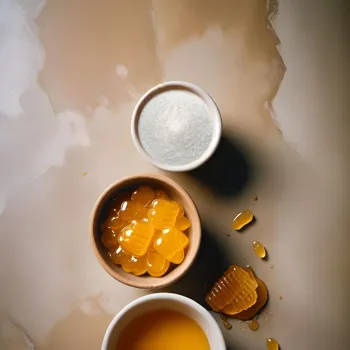
It’s like giving your skin a fresh start, buffing away the dullness and revealing the radiance beneath. Besan is a great alternative to harsh scrubs, which can irritate sensitive skin. It’s a natural and gentle way to keep your skin looking its best.
The flour is also known for its ability to absorb excess oil, making it a great choice for people with oily or acne-prone skin.
Besan is an excellent remedy for tan removal. Mix it with curd (yogurt) and a pinch of haldi (turmeric) to create a powerful tan-removing face pack.
The lactic acid in curd helps to lighten the skin, while haldi adds its brightening properties. Apply this paste to the tanned areas of your skin, let it dry for about 20-30 minutes, and then gently scrub it off while washing with water. Regular use can visibly reduce tan and improve skin tone.
For exfoliation, you can simply mix besan with water or rose water to form a paste and use it as a gentle scrub. Massage it onto your skin in circular motions for a few minutes, then rinse it off with water.
This will help remove dead skin cells, unclog pores, and leave your skin feeling soft and refreshed.
You can customize your besan face packs by adding other ingredients like honey, lemon juice, or milk, depending on your skin type and concerns.
Honey is a great addition for dry skin, while lemon juice can help brighten dark spots. Milk adds moisture and soothes irritated skin. When buying besan, make sure to choose a good-quality, finely ground flour for the best results.
Coarsely ground besan can be too abrasive and may irritate the skin. Also, store besan in an airtight container in a cool, dry place to prevent it from going bad. Embracing the humble besan can be a game-changer for your skincare routine.
It’s an affordable, natural, and effective way to achieve a healthy and glowing complexion.
Nimbu (Lemon) for Brightening and Dark Spot Reduction
Nimbu, or lemon, is a sunshine in a fruit, bursting with vitamin C and citric acid. These components make it a potent natural remedy for brightening skin and reducing dark spots. Lemon is a natural bleaching agent, helping to lighten hyperpigmentation and even out skin tone.
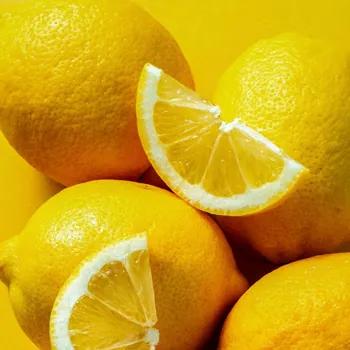
It’s like giving your skin a dose of sunshine, illuminating its natural radiance and fading away the shadows of dark spots. Lemon has been used for centuries in traditional beauty remedies and is loved for its ability to transform dull skin into a glowing masterpiece.
Lemon juice can be applied directly to dark spots and blemishes using a cotton ball. Leave it on for about 10-15 minutes, then rinse it off with water. Be careful not to leave it on for too long, as it can irritate sensitive skin.
It’s crucial to dilute lemon juice with water or honey before applying it to your entire face to prevent over-drying or irritation. A simple lemon and honey face mask can be made by mixing equal parts of lemon juice and honey.
Apply this to your face, leave it on for about 15 minutes, and then wash it off with lukewarm water. This mask will help brighten your skin, reduce dark spots, and moisturize your skin.
Always remember to apply sunscreen after using lemon juice on your skin, as it can make your skin more sensitive to the sun. Sunscreen is essential to protect your skin from sun damage and prevent further darkening of spots.
You can also use lemon juice to lighten your elbows and knees, areas that tend to be darker than the rest of your body. Mix lemon juice with baking soda to create a scrub, apply it to the elbows and knees, and gently massage for a few minutes.
Rinse it off with water, and you'll notice a visible difference over time. Adding lemon juice to your bath water can also help brighten your skin and give it a refreshing glow. Its zesty fragrance will invigorate your senses and leave you feeling energized.
Dahi (Yogurt) for Moisturizing and Fighting Acne
Dahi, or yogurt, is a creamy delight that's not just good for your gut but also amazing for your skin. It's a natural source of lactic acid, an alpha hydroxy acid (AHA) that gently exfoliates the skin, removing dead skin cells and promoting cell turnover.
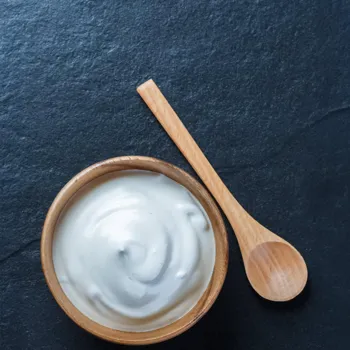
It’s like giving your skin a mini-peel, revealing a fresher, brighter complexion. Dahi is also rich in probiotics, beneficial bacteria that can help balance the skin's microbiome and fight acne-causing bacteria.
It’s a versatile ingredient that can be used in various skincare recipes to address a wide range of skin concerns.
Dahi is an excellent natural moisturizer. Its creamy texture helps hydrate the skin and keep it supple.
Apply plain yogurt to your face as a mask, leave it on for about 15-20 minutes, and then rinse it off with water. It's also effective in fighting acne due to its antibacterial and anti-inflammatory properties.
The probiotics in yogurt help to control acne-causing bacteria, while the lactic acid reduces inflammation and promotes healing. You can apply plain yogurt directly to acne-prone areas or create a face mask by mixing yogurt with honey and haldi.
To enhance the moisturizing effect of dahi, you can mix it with honey or avocado. Honey is a natural humectant that attracts moisture to the skin, while avocado is rich in healthy fats that nourish and hydrate the skin. For an acne-fighting face mask, mix dahi with neem powder or tea tree oil.
Neem is known for its antibacterial properties, while tea tree oil is a powerful antiseptic that can help kill acne-causing bacteria. You can also use dahi to soothe sunburned skin. Its cooling properties will help reduce redness and inflammation.
Apply plain yogurt to the affected areas and leave it on for about 15 minutes before rinsing it off with water.
Shahad (Honey) for Hydration and Wound Healing
Shahad, or honey, is liquid gold for your skin! This natural sweetener is a humectant, meaning it draws moisture from the air and locks it into your skin, keeping it hydrated and supple. It’s like giving your skin a long, refreshing drink,quenching its thirst and leaving it feeling plump and dewy.
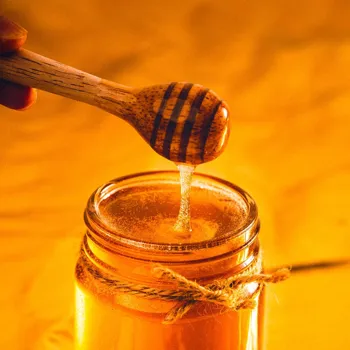
Honey is also packed with antioxidants and antibacterial properties, making it a powerful ally in fighting acne and promoting wound healing.
It’s been used for centuries in traditional medicine and skincare practices and is loved for its ability to transform dull, tired skin into a radiant masterpiece.
Honey is known for its ability to heal wounds and scars. It has antiseptic properties that prevent infection and promote faster healing.
It's also a great remedy for dry, chapped lips. Simply apply a thin layer of honey to your lips before bed and wake up to soft, moisturized lips. For a hydrating face mask, apply raw honey directly to your face, let it sit for about 15-20 minutes, and then rinse it off with lukewarm water.
This will leave your skin feeling soft, smooth, and radiant. Honey can also be combined with other ingredients to create custom face masks for different skin types.
To enhance the healing properties of honey, you can mix it with cinnamon or turmeric.
Cinnamon has anti-inflammatory properties that can help reduce redness and swelling, while turmeric has antibacterial properties that can help prevent infection. For a brightening face mask, mix honey with lemon juice or yogurt.
Lemon juice helps to lighten dark spots, while yogurt exfoliates the skin and improves its texture. When buying shahad, always opt for raw, unprocessed honey to ensure you're getting the maximum benefits. Processed honey may contain added sugars and preservatives that can be harmful to your skin.
Also, perform a patch test before applying honey to your entire face, as some people may be allergic to it.
Tulsi (Holy Basil) for Purifying and Preventing Infections
Tulsi, also known as holy basil, is revered in India for its medicinal properties. This sacred herb is not just beneficial for your health but also for your skin.
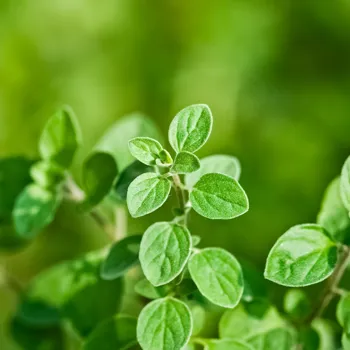
It possesses powerful antibacterial, antifungal, and anti-inflammatory properties, making it an excellent remedy for various skin problems. It's like having a guard which ensures that the skin remains secure, defending against infections and maintaining cleanliness.
Tulsi can help purify the blood, which in turn leads to clearer skin. It's also known to prevent skin infections due to its potent antimicrobial properties. You can make a tulsi paste by grinding fresh tulsi leaves with a little water.
Apply this paste to acne, pimples, or other skin infections, and let it sit for about 20-30 minutes before rinsing it off with water. Regular use can effectively reduce inflammation, fight infection, and promote healing.
To prepare tulsi-infused water, infuse 10-15 cleaned leaves to a liter of water for consumption. This helps purifying blood and is a great benefit to the skin. Also, for a tulsi-infused toner, boil a handful of leaves in water, let it cool, and then use it as a toner after cleansing your face.
This will help tighten pores, control oil production, and prevent acne breakouts. If you have access to fresh tulsi leaves, you can also add them to your bath water for a refreshing and purifying experience.
The aromatic scent of tulsi will invigorate your senses and leave your skin feeling refreshed and clean.
So, there you have it! Seven amazing natural remedies that can help you achieve healthy, glowing skin.
Remember to be patient and consistent with your skincare routine, and always listen to your skin's needs. With a little bit of effort and these natural helpers, you'll be well on your way to radiant, beautiful skin without breaking the bank!
